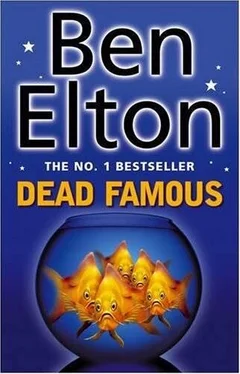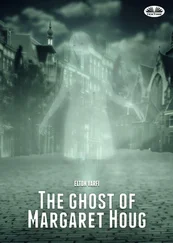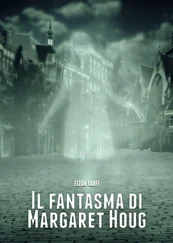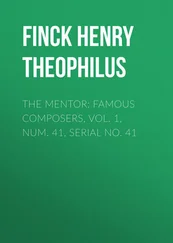DAY FORTY-NINE. 7.30 p.m.
Hamish was evicted in the usual manner, but nobody noticed very much. Try as Chloe might to drum up some interest in his departure, all anybody wanted to talk about was the sensational news that another murder was to take place.
The whole world buzzed with the news that one of the final three would die.
“It’s curious, isn’t it?” Coleridge said, inspecting the ugly scrawled note that lay in Geraldine’s office in a plastic evidence bag.
“It’s fucking chilling, if you ask me,” said Geraldine. “I mean, how the hell would he have known he was going to be in a position to do Kelly on day twenty-seven? I hadn’t even had the idea for the sweatbox then. Besides, he might have been evicted by then. I mean, he couldn’t get back into the house, could he? And what about this stuff about killing one of the last three? I mean, nobody knows who the last three will be. It’s up to the public”
“Yes,” said Coleridge. “It is all very strange, isn’t it? Do you think there’ll be another murder, Ms Hennessy?”
“Well, I don’t really see how there can be… On the other hand, he was right about Kelly, wasn’t he? I mean, the predictions envelope was put in the cupboard at the end of week one. There’ve been cameras trained on that cupboard ever since. There is no way it could have been interfered with. Somehow the killer knew .”
“It would certainly seem so.”
At that point Geraldine’s PA entered the office. “Two things,” said the PA. “First, I don’t know how you did it, Geraldine, but you did. The Americans have agreed to your price of two million dollars a minute for the worldwide rights to the final show, the Financial Times are calling you a genius…”
“And the second thing?” asked Geraldine.
“Not such good news. Did you see Moon in the confession box? They want a million each, right now, up front, to stay in the house for another moment.”
“Where’s my cheque book?” said Geraldine.
“Isn’t that against the rules?” Coleridge asked.
“Chief inspector, this is a television show. The rules are whatever we want them to be.”
“Oh yes, I was forgetting. I suppose that’s true.”
“And this show,” Geraldine crowed triumphantly, “goes right down to the wire.”
DAY FIFTY-THREE. 6.00 p.m.
Over the next few days the police did everything they could to gain some information from the note that had been found in the predictions envelope. They re-entered the house and took samples of everybody’s handwriting, both right and left. They fingerprinted the kitchen cupboard. They pored for hours over the surviving footage from week one when the predictions had been written.
“Nothing. We’ve learnt nothing at all,” said Hooper.
“I didn’t expect that we would,” Coleridge replied.
“Oh well, that’s a comfort, sir,” said Hooper as testily as he dared. “I just don’t see how it could have happened.”
“And there,” said Coleridge, “is the best clue you’re going to get. For it seems to me that it couldn’t have happened.”
Trisha had been on the phone. Now she put the receiver down with a gloomy face. “Bad news, I’m afraid, sir. The boss wants you.”
“It is always a pleasure to see the chief constable,” Coleridge said. “It makes me feel so much better about retiring.”
DAY FIFTY-THREE. 8.00 p.m.
The chief constable of the East Sussex Police was sick to death of the Peeping Tom murder. “Murder is not what we here in New Sussex are all about, inspector. Here I am, trying to build a modern police service” – the chief constable did not allow the term police force - “a service that is at ease with itself and comfortably achieving its goal targets in the key area of law upholdment, and all anybody wants to talk about is your failure to arrest the Peeping Tom murderer.”
“I’m sorry, sir, but these investigations take time.”
“New Sussex is a modern, thrusting, dynamic community, inspector. I do not like having our customer service profile marred by young women falling off lavatories with knives in their heads.”
“Well, I don’t think any of us do, sir.”
“It’s an image-tarnisher.”
“Yes, sir.”
“Quite apart, of course, from the human dimensions of the tragedy vis-a-vis that a customer is dead.”
“That’s right.”
“And now we have this appalling new development of further threats being made. We are a modern community, a dynamic community and, I had hoped , a community where groups of sexually and ethnically diverse young people could take part in televised social experiments without being threatened with illegal life termination.”
“By which you mean murder, sir.”
“Yes, I do, chief inspector, if you wish to so put it, yes I do! This new threat is making us look like fools! We must be seen to be taking it very seriously indeed.”
“By all means, sir, let us be seen to take it seriously, but I am of the opinion that we do not need to actually take it seriously.”
“Good heavens, chief inspector! A murder has been announced! If the law upholdment service doesn’t take it seriously then who will?”
“Everyone else, no doubt, sir, particularly the media,” said Coleridge calmly. “But as I say, I do not think that we need to. I do not think that there will be another murder.”
“Oh yes, and what grounds do you have for this confidence?”
“I don’t think that the killer needs a second death. One was enough, you see.”
The chief constable did not see, and he did not think much of Coleridge’s enigmatic tone. “One was too bloody many, Coleridge! Do you know that when this story broke I was about to make public my new policy document style initiative entitled Policing The Rainbow ?”
“No, sir, I was not aware.”
“Yes, well, you weren’t the only one who was not aware. No one was aware. The damn thing sank without trace. Weeks of work, ignored, absolutely ignored because of this ridiculous murder. It’s not easy catching the eye of the Home Secretary these days, you know.”
“Moon,” said Chloe “you have been evicted from the house.”
“Yes!” Moon shouted, punching the air, and for once an evictee actually meant what she said. Moon had her million pounds plus the two hundred thousand Geraldine had promised for the next one out, and she was ecstatic to be free. She had no desire to be one of the last three, not now one of them was under sentence of death.
The three remaining inmates looked at each other. Gazzer, Jazz and Dervla. One more week. Another million to the winner. Half a million to the runner-up. Three hundred thousand even for the one who came third.
If all three survived, of course.
Worth the risk, certainly. Gazzer would use it to pursue a life of luxury. Jazz would start his own TV production company. Dervla would save her family from ruin ten times over. Definitely worth the risk.
Nobody spoke. They did not speak much at all any more, and they had all taken to sleeping in separate parts of the house. Even Jazz and Dervla, who had become close, could no longer trust each other. After all, it was they who had been closest to the exit on the night Kelly was killed. And now there was this new threat. The whole process was nothing more than a long, grim waiting game.
Gazzer, Jazz, Dervla and the whole world, all waiting for the final day.
Woggle was digging for as much as sixteen hours a day now. Not consecutively: he would dig for a few hours then sleep a while and, on waking, begin again immediately. Days did not matter to Woggle. It was hours that counted. Woggle had one hundred and fifteen of them left until the final episode of House Arrest began. He would have to hurry.
Читать дальше












